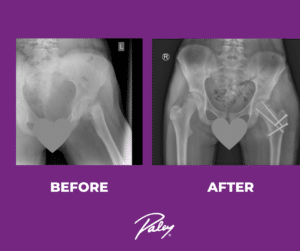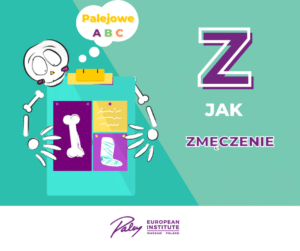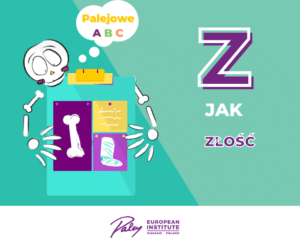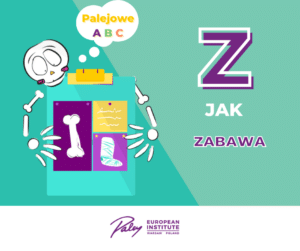Everyone reacts to a child’s diagnosis in a slightly different way. Everyone goes through this process at their own pace. And although we can distinguish several phases of characteristic responses to diagnosis and disease, it does not mean that everyone will go through all of them. Some may be extensive, others may not appear at all.
The reaction depends on many factors – previous experiences, prognosis, how surprising the diagnosis was, optimistic or pessimistic approach to problems, the way of thinking (whether we focus more on reflecting on the past or thinking about the future), support from others, our well-being and health , temperament … It is certain, however, that each person reacts as best he can in a given situation and tries to cope with the diagnosis.
Elisabeth Kübler-Ross, while treating her patients, noticed that the phases of coping with the disease are: denial, anger, bargaining, depression, and acceptance. These stages can also be applied to dealing with a child’s diagnosis.
What do they entail?
1. Denial – Receiving a diagnosis may come with a shock. It is associated with a sense of loss, helplessness, and unreality of the situation. This is usually such a stressful moment that parents may contradict the information received in the initial phase. It can’t be true, it’s just a bad dream, it’s definitely a mistake – such thoughts and words are characteristic in this early period. Attempting to deny a situation and not believing what is happening is a defense mechanism that tries to protect us from difficult emotions and maintain balance. During this period, it may also happen that we will not remember what happened, what the doctor said, what recommendations he gave. Staying in this phase for a long time may make it difficult to build a bond with the child and respond adequately to his needs (both emotional and physical). Difficulty in adjusting your requirements to the child’s abilities and treating him as completely healthy may appear. At the same time, the willingness to make efforts to improve the child’s condition may decrease.
2. Anger – Parents may experience feelings of injustice and anger. They wonder: why is this happening to me, why my child? The caregivers are aware of the seriousness of the situation, admit the thought of the child’s diagnosis, but cannot come to terms with it. There may be blaming – both myself (e.g. I could take care of myself more during pregnancy) and others (It was all because of doctors, how could they not notice that something was wrong. It was because of my parents, they should not have interfered in our lives and upset us). There may be aggressive and impulsive behavior – breaking objects, throwing them, slamming doors. This anger covers the immense anxiety, regret, and disappointment that smolder beneath the surface.
3. Haggling and negotiating – this is the period when it is believed that there is a possibility of efficient and effective healing. The family begins to fight for the health of the child. It is interested in treatment and gets to know the disease. At this level, a pragmatic mind operates. However, magical thinking can also come to the fore, which can lead to the use of unproven and sometimes harmful methods and meeting with various types of healers who promise to cure the child effectively. Different kinds of thoughts and promises are also characteristic at this stage, which we make, as if it were a sacrifice, so that the child could be healed: I can give my health so that only my child will recover. Maybe I prayed too little. I will do it more, just, let it be better. I will never raise my voice at my child again, just please, let him recover.
Active search for new and effective methods of action can lead to fatigue not only of parents but also of the child. Undertaking many activities, various types of therapies – sometimes mutually exclusive, is of course aimed at helping the child, but sometimes it brings opposite effects. There is a risk that the child will be overburdened with what we offer him and instead of making progress, he will stand still or even regress in behavior or development. At this stage, the whole family has many emotional costs that can lead to burnout and depression.
4. Depression – Usually this period is one of the longest. It is accompanied by a feeling of helplessness and hopelessness. Everything is pointless, and nothing will help. It will always be so hopeless. I’m afraid that the next procedure will fail. I can’t make it.
The family grieves and helplessness replaces earlier hope. Parents are aware of the impact of the disease on the life and functioning of the child. They begin to realize the limitations that the disease will bring not only to the child but also to the whole family. They are worried about the economic situation, wondering how to organize funds for life and treatment. Mom often quits her job because caring for the baby becomes too absorbing and demanding. The child’s progress stops being happy and the fatigue becomes overwhelming and overwhelming. Conflicts can arise between partners, especially when they have different ways of reacting to difficult situations. There is a misunderstanding, withdrawal, a sense of loneliness and aversion towards the other person. On top of all this, there is sometimes shame about the child’s illness and blaming oneself and others. At this stage, the family needs support, looking in one direction, pursuit of a goal, which sometimes turns out to be beyond strength and possibilities. Then it is worth reaching for outside help.
5. Acceptance – I am reconciled with the fact that it is what it is. I do what I can and what I can influence and I accept the rest. At this stage, the parents finally say goodbye to the expectations and vision of a fully healthy child. Family members become more gentle with themselves and their children. The family starts to enjoy their baby’s progress and new treatment options again. Family members get used to the situation and get involved in the treatment process.
Remember that everyone deals with their pain differently. One day you can be in despair and the next day you can feel that you can do anything. Emotions can change like a kaleidoscope. Each of them is important, each of them will eventually pass. In the period of coping with the diagnosis, it is worth being gentle with yourself and giving yourself the time needed.






